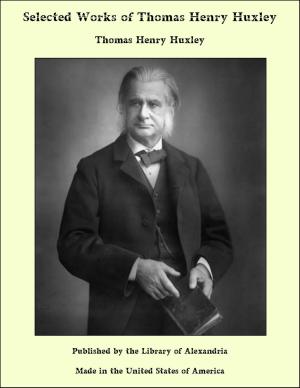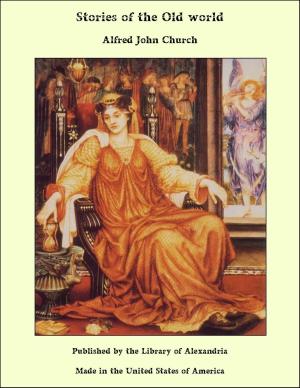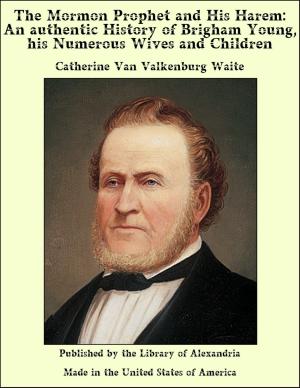Nabul: Our Little Egyptian Cousin
Nonfiction, Religion & Spirituality, New Age, History, Fiction & Literature| Author: | Blanche McManus | ISBN: | 9781465610799 |
| Publisher: | Library of Alexandria | Publication: | March 8, 2015 |
| Imprint: | Language: | English |
| Author: | Blanche McManus |
| ISBN: | 9781465610799 |
| Publisher: | Library of Alexandria |
| Publication: | March 8, 2015 |
| Imprint: | |
| Language: | English |
Hi-yah! Hi-yah! Who will ride on Nabul's little donkey,—the swiftest donkey in all the great city of Cairo? called out a shrill, clear voice. Through the crowded street there clattered a little white donkey and on his back was a small boy, laughing merrily and waving a short stick in one hand. "Oh, look to thy face! Oh, look to thy heels! Oh, make way for me, good people!" cried the little boy as he guided his donkey skilfully through the crowd by taps with his heels. As the donkey pushed his way along, everybody laughed good-naturedly, and stepped aside. "'Tis only that imp of mischief, Nabul, and his donkey," they would say as they made way for the little rider, for everybody knew and liked little Nabul Ben Hassan, the youngest donkey boy in Cairo. Presently the donkey trotted around a corner and nearly upset a little table of cakes, beside which sat an old man fast asleep. "Plague on thee, dost thou not yet know how to drive a donkey?" grumbled the old fellow, who woke up just in time to save his cakes. "Nay, father, 'tis thou who knowst not how to sell cakes, for thou wast fast asleep, while the flies ate the sugar from thy cakes without paying for it," answered Nabul. This made the passers-by laugh, for Nabul was a great favourite in the quarter, and the old cake-seller was not, for sometimes he tried to cheat them when they came to buy his round, brown cakes covered all over with honey. Nabul now hurried on the faster. He was anxious to reach the square where all the donkey boys of the city were to be found at noon, for he had a great piece of news to tell his chum Abdal, who would be sure to be there. Nabul had just come from the big hotel in the main street where, along with all the other donkey boys, he liked to trot his little donkey up and down the street in front of the veranda, or terrace, of the hotel, hoping to attract the attention of those strange-speaking people who came from over the seas to see his country and to ride on the little Egyptian donkeys. Indeed, truth to tell, the donkey boys thought the strangers came to Egypt just for that purpose, and out of compliment to the travellers, and with an eye to business, many of the boys named their donkeys after the great people of the various countries. There was a "King Edward" and a "Chamberlain" and a "Lord Cromer," to please the English, and another donkey was named after the French President "Fallieres," while Nabul himself called his "Teddy,"—you all know who that is,—and he usually called him "Teddy Pasha," because Pasha means, in his language, a great man. Nabul already knew about America, that big country so far away, for did he not have an uncle who had been a "donkey boy" in "The Streets of Cairo" at the great Chicago Exposition, and was even now at a place called Coney Island? This uncle wrote him letters full of tales of wonderful doings, and did he not know also two of the oldest donkey boys now in Cairo who had been to the big Exposition in America?
Hi-yah! Hi-yah! Who will ride on Nabul's little donkey,—the swiftest donkey in all the great city of Cairo? called out a shrill, clear voice. Through the crowded street there clattered a little white donkey and on his back was a small boy, laughing merrily and waving a short stick in one hand. "Oh, look to thy face! Oh, look to thy heels! Oh, make way for me, good people!" cried the little boy as he guided his donkey skilfully through the crowd by taps with his heels. As the donkey pushed his way along, everybody laughed good-naturedly, and stepped aside. "'Tis only that imp of mischief, Nabul, and his donkey," they would say as they made way for the little rider, for everybody knew and liked little Nabul Ben Hassan, the youngest donkey boy in Cairo. Presently the donkey trotted around a corner and nearly upset a little table of cakes, beside which sat an old man fast asleep. "Plague on thee, dost thou not yet know how to drive a donkey?" grumbled the old fellow, who woke up just in time to save his cakes. "Nay, father, 'tis thou who knowst not how to sell cakes, for thou wast fast asleep, while the flies ate the sugar from thy cakes without paying for it," answered Nabul. This made the passers-by laugh, for Nabul was a great favourite in the quarter, and the old cake-seller was not, for sometimes he tried to cheat them when they came to buy his round, brown cakes covered all over with honey. Nabul now hurried on the faster. He was anxious to reach the square where all the donkey boys of the city were to be found at noon, for he had a great piece of news to tell his chum Abdal, who would be sure to be there. Nabul had just come from the big hotel in the main street where, along with all the other donkey boys, he liked to trot his little donkey up and down the street in front of the veranda, or terrace, of the hotel, hoping to attract the attention of those strange-speaking people who came from over the seas to see his country and to ride on the little Egyptian donkeys. Indeed, truth to tell, the donkey boys thought the strangers came to Egypt just for that purpose, and out of compliment to the travellers, and with an eye to business, many of the boys named their donkeys after the great people of the various countries. There was a "King Edward" and a "Chamberlain" and a "Lord Cromer," to please the English, and another donkey was named after the French President "Fallieres," while Nabul himself called his "Teddy,"—you all know who that is,—and he usually called him "Teddy Pasha," because Pasha means, in his language, a great man. Nabul already knew about America, that big country so far away, for did he not have an uncle who had been a "donkey boy" in "The Streets of Cairo" at the great Chicago Exposition, and was even now at a place called Coney Island? This uncle wrote him letters full of tales of wonderful doings, and did he not know also two of the oldest donkey boys now in Cairo who had been to the big Exposition in America?















